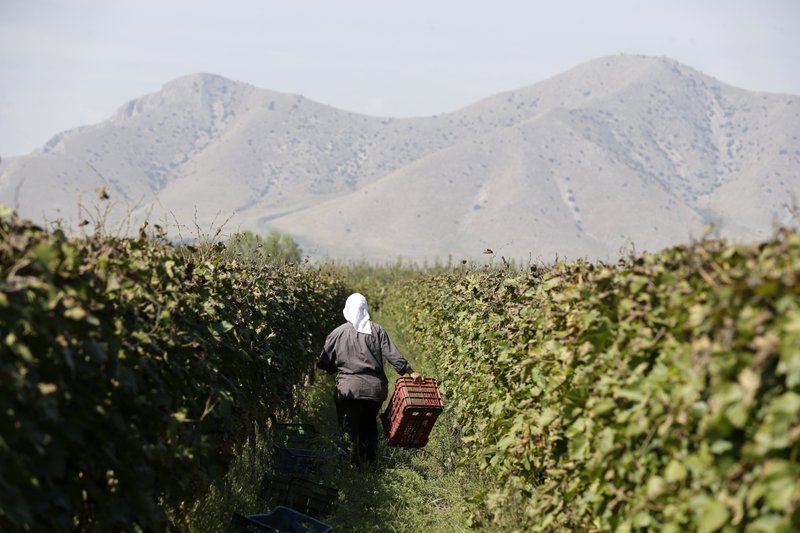TIRNAVOS, Greece -- A close relative of the Greek liqueur ouzo, tsipouro has become increasingly popular during the recession as an affordable alternative to imported drinks but is now facing a tax increase under European Union rules that could almost double its price.
Coming on top of other tax increases the government is planning to pay off debts, the news is a disaster for Tirnavos, a farming town in central Greece famous for its production of tsipouro.
"If I charge 4 euros [about $4.50] for a small bottle of tsipouro and suddenly raise the price to 6 euros [$6.75], customers will cut back immediately. They have no spare money in their pocket," said Giorgos Tsitsiroulis, who runs the tavern in the city of 20,000 where many store signs are still hand-painted.
"It will affect the entire area, because it's a product that's entirely local. The grapes are from this area, the wood to fire the stills is local, the labels on the bottle are local, everything."
Similar to Italian grappa or Turkish raki, tsipouro is a clear and powerful spirit that is produced from twice-distilled grape residue. It is made with and without anise flavoring, the addition making the drink turn cloudy when water is added.
The European Union has given Greece two months to double taxes on tsipouro, arguing it does not have the right to keep a reduced duty that is reserved for some traditionally made products. It also wants Athens to crack down on small independent producers who pay a low tax rate that is aimed at helping small producers but is now widely abused for bulk supply to small restaurants nationally.
For branded tsipouro, the tax increase would push up the retail price of a 700ml bottle from roughly $11.25 to $19, equaling the price of whisky and vodka.
Farmers also will feel the effects of many new government budget measures, with bailout lenders demanding an end to cheaper fuel used in agriculture, higher income tax rates, and larger advance payments on annual tax bills for the self-employed.
"It's a double hit for us," said Vagelis Sikalos, manager at the Agricultural Winery Cooperative of Tirnavos, the region's largest single tsipouro producer.
"It will hit consumption ... and result in the decline of this rural area, hurting jobs. A huge part of the population works in vineyards. The crisis in Greece will be magnified in Tirnavos."
Prime Minister Alexis Tsipras' newly re-elected government is pledging to push through cost-cutting measures over the next six weeks that will affect farmers, the health service, pension system, and public administration, in exchange for bailout loans and rescue money for its troubled banks.
Tsipras, who won a vote of confidence from the new Parliament early today in Athens, has already warned the country of the tough road ahead with budget forecasts this week predicting another two years recession and unemployment above 25 percent.
Out of 299 parliament members participating in the vote, 155 were in favor of Tsipras' government. All of them were from the two-party coalition consisting of Tsipras' Syriza and the Independent Greeks.
Panagiotis Papras, who uses 12 acres to grow wine grapes, fears the new tax increases could force farmers to switch from growers to importers.
"Grapes are the raw material. If they go, everything else follows: The winery, the jobs there, all the shops that sell tsipouro in the area. Eighty percent of the grapes grown here are used for alcohol production."
Papras is the last farmer in the region to finish this year's harvest, and is helped by workers from Albania who sit on beer crates snipping grape bunches off the vines -- from the local red moschato and white roditis varieties.
"Tsipouro is a poor man's drink. The rich would drink the wine and what was left was used to make tsipouro for everyone else. So to tax it this way is really unbelievable," he said.
The drink is a huge source of pride in the town and owning a still is a symbol of status.
Truck driver Constas Parakos insists the town of Tirnavos will never give up its love for the drink.
"If someone can't afford three carafes, he'll buy two." he said. "Tsipouro will never disappear from Tirnavos. Elsewhere it might, but not here."
A Section on 10/08/2015
